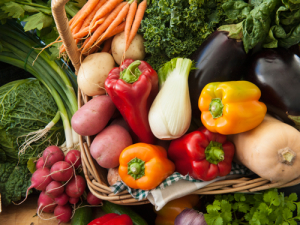Australia’s revised nation-wide Horticulture Code will include the potential for penalties of up to A$54,000 when it comes into effect on April 1, 2017.
The Horticulture Code is a mandatory industry code under the Australian Competition and Consumer Act, which sets out the minimum requirements for agents and traders in their dealings with fruit and vegetable growers. It was first introduced in 2006, in response to industry concerns about anticompetitive behaviour and poor commercial practices in fresh fruit and vegetable markets in Australia.
A 2015 review of the code identified a number of major deficiencies and loopholes, which the revised code seeks to address.
“Farmers producing fruit and vegetables will be given increased protection under the Horticulture Code as it improves competition and commercial practices in fresh fruit and vegetable markets in Australia,” ACCC Commissioner Mick Keogh says.
Traders and agents will be required to provide clear documentation of their general trading terms, and to have written agreements in place with their farmer clients, to avoid much of the commercial uncertainty that currently exists in these markets.
The revised code also removes the provision in the existing code that exempted all pre-existing trading agreements, and which meant it did not apply to the majority of trade occurring in the sector.
“From 1 April 2018, the Code will apply to all transactions between farmers and agents or merchants, regardless of when any trading agreement was put in place. This is a real win for farmers,” says Keogh.
The changes provide the Australian Competition and Consumer Commission with new powers to:
- issue infringement notices of A$9,000 for businesses, and $1,800 for individuals
- seek penalties of up to A$54,000 in court for breaches of certain Code provisions.
“Infringement notices will allow the ACCC to quickly deal with conduct it believes breaches the Code, while tougher court penalties should provide a stronger deterrent than was the case under the current code,” Mr Keogh said.
Keogh says an important and welcome new addition to the Code requires negotiating parties to act in good faith, or face potential fines.
“Farmers deserve fairness and honesty from their trading partners and the good faith requirement will help ensure they aren’t subjected to illegitimate business conduct,” Mr Keogh said.
“The good faith requirement will also bring the Horticulture Code into line with the Food and Grocery and Franchising codes, which have similar provisions.”



















